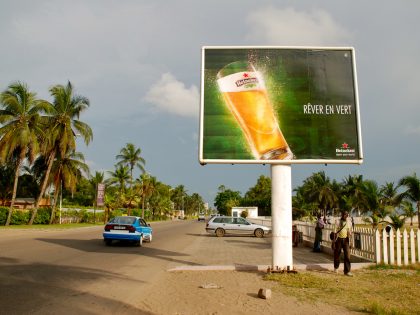
The missing 27 billion
Governments need funds for stimulus packages and aid to address COVID-19. But corporate tax avoidance and tax breaks for aid in African countries is undermining emergency responses.

Governments need funds for stimulus packages and aid to address COVID-19. But corporate tax avoidance and tax breaks for aid in African countries is undermining emergency responses.


Hip hop and the Black political mainstream more broadly, continues to have hope in the promises of American capitalism.

We can only end hunger when people have control over what they eat and how that food is produced.

Industrialization was sought as a panacea to ethnic conflicts, resource crisis, and unemployment. But what prospects does it actually offer to Ethiopian youth?

Beyonce offered me escapism in my childhood. But now I see the contradictions and shortcomings in her claimed radicalness.

Ubinafsishaji wa huduma ya afya nchini Kenya.

In Kenya, only the rich and politically connected can afford decent healthcare. Everyone else is a major illness or a road accident away from ruin.

In this, the first of a series of posts, we critically look at the implications of climate policy in the most powerful Western country for Africans.

Eko Atlantic in Lagos, like Tatu City in Nairobi, Kenya; Hope City in Accra, Ghana; and Cité le Fleuve in Kinshasa, DRC, point to the rise of private cities. What does it mean for the rest of us?

Iniciam nosso projecto sobre o capitalismo em Nairobi, perguntando: Será que já não existe um salário decente?

Tunaanza uchambuzi wetu kuhusu ubepari jijini Nairobi tukiuliza: Je, kuna kitu kama mshahara mzuri siku hizi?

We start our project on capitalism in Nairobi by asking: Is there such a thing as a decent wage anymore?

The intersecting dynamics of class and gender, changing beauty ideals, and the expansion of consumer capitalism in Africa.

The fundamental flaws in President Uhuru Kenyatta's plan to make jails profitable.

Reflections from New Orleans, Louisiana—the US's most African city—on the economic fallout from the coronavirus pandemic.

In South Africa, social distancing to bring down COVID-19 infections takes a decidedly local shape. In a racialized society, it manifests primarily as white melancholia and black Afro-pessimism.

COVID-19 isn’t simply a medical or epidemiological crisis; it is a crisis of sovereignty.

Multinational corporations are considered motors for development in Africa and the Dutch beer giant Heineken is often cited as one of the best examples. The reality is different and distressing.

The world is out of joint and Immanuel Wallerstein, one of its great public intellectuals, has left us—albeit with tools to battle the dying kicks of capitalism.